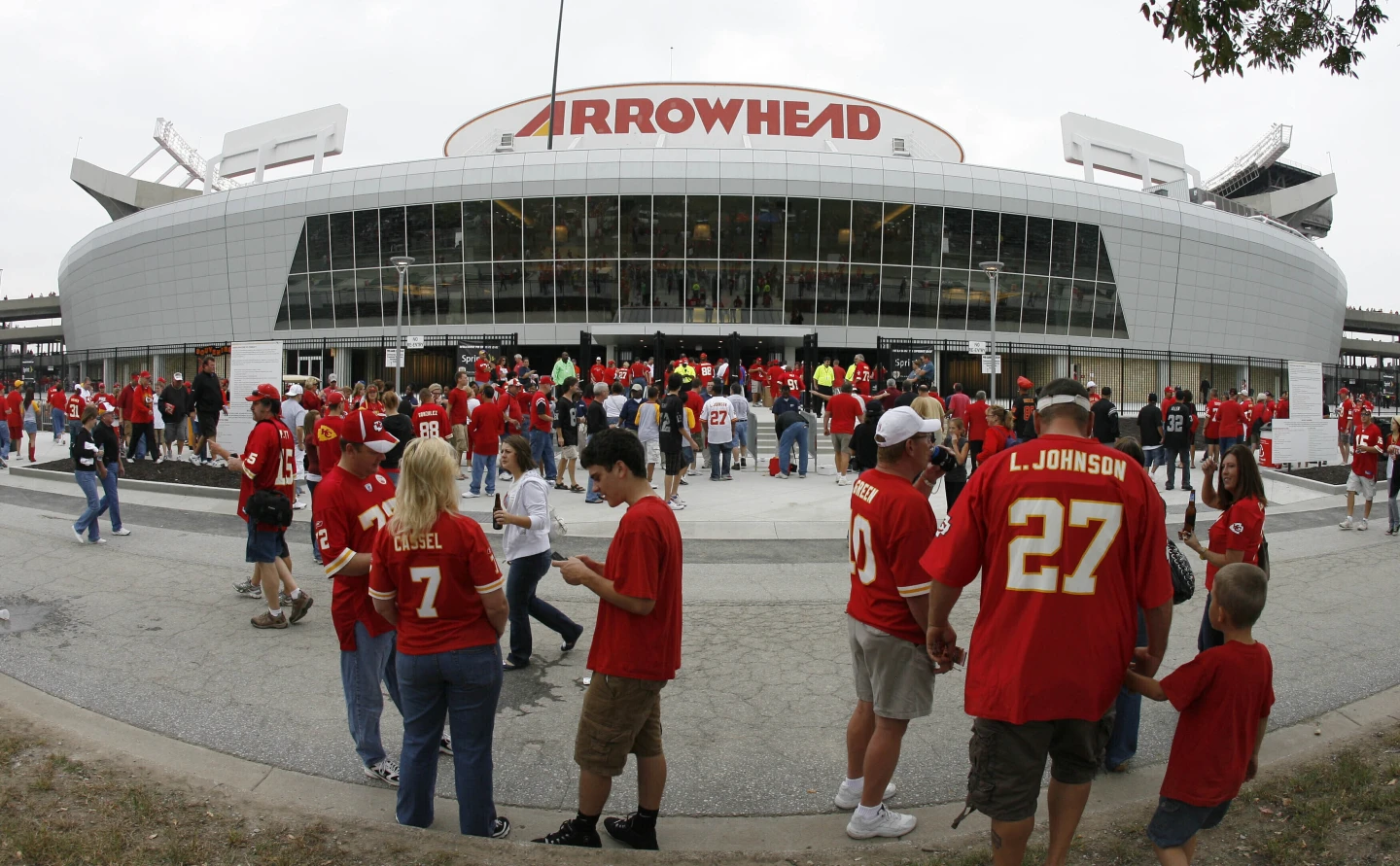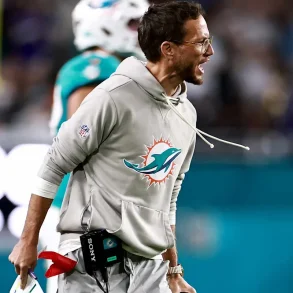Since Patrick Mahomes became the team’s leader, the Chiefs have won 15 out of 18 playoff games. This is a big change for a team that had only won one of its previous 12 playoff games, leaving fans feeling worried and unsure.
During this incredible run, the Chiefs have played in four of the last five Super Bowls, winning three of them. Now, they are aiming to become the first team to win three Super Bowls in a row as they enter this postseason.
Along with all this success, the Chiefs have become the team that every other team wants to beat during the regular season, which makes it even more impressive that they finished this season with a 15-1 record, except for the unimportant loss in Denver last weekend.
But there is something else that has developed during this time of playing almost an extra season in the last six years: a strong psychological edge that helps them in the playoffs in a way that no other NFL team currently experiences. It’s not just that other teams, whether they’ve faced the Chiefs recently or not, wonder what it will take to beat them in the playoffs.
The Texans found out five years ago that a 24-0 first-half lead wasn’t enough when they lost in a playoff game where the Chiefs made an unprecedented comeback, overcoming three straight double-digit deficits on their way to winning the Super Bowl. The Bills also learned the hard way, when a 36-33 lead with 13 seconds left wasn’t enough to stop the Chiefs from coming back and winning three years ago.
Last season, the Bills had a chance to tie the game with a 44-yard field goal in Buffalo with 1 minute, 47 seconds left, but it didn’t matter, just like in the 2021 season, when the Bills beat the Chiefs in a regular season game, but that didn’t help them when it was most important. The point here isn’t so much about how the Chiefs have gotten inside the heads of their opponents or their current seven-game postseason winning streak, which is the longest in NFL history.
(Though, to be clear, the Patriots had a 10-game postseason winning streak from 2001-2005, but they didn’t make the playoffs in 2002, and the Packers had a nine-game streak from 1961-1967, but they missed the playoffs in 1963 and 1964.)
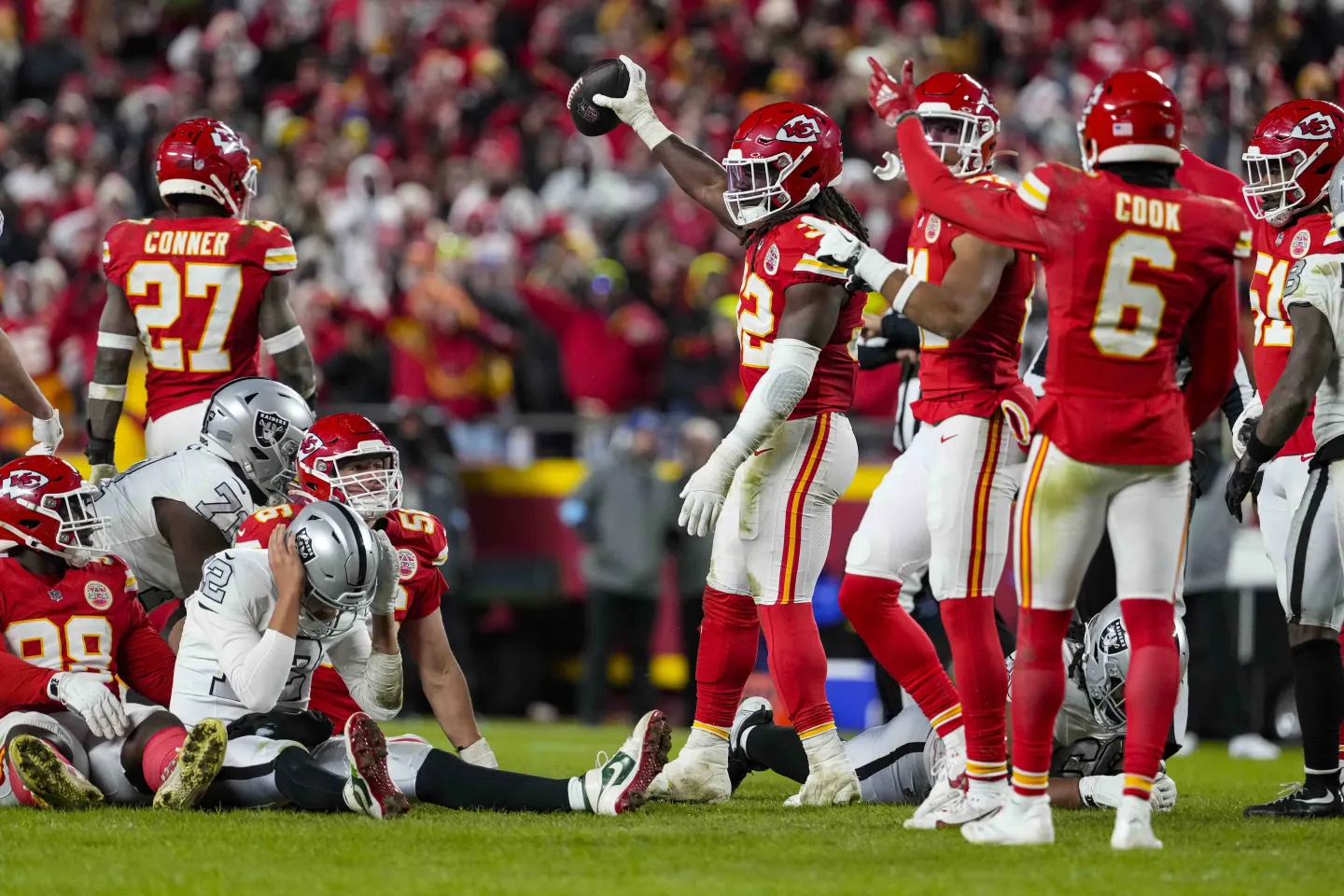
The main point is about what’s likely going on in the Chiefs’ own minds: the confidence and belief that have helped them continue to succeed in tough situations, often shown in Mahomes’ remarkable ability to make big plays under pressure.
“A pressure advantage would be the best way that I would describe it…” Chiefs safety Justin Reid explained to The Star a few weeks ago. “We’ve been in enough high-pressure situations that high-pressure situations don’t cause us to break. We know how to thrive in those situations.”
There are many reasons why the Chiefs seem to be ready for the playoffs, with this extra mental strength giving them an advantage, and this will be even stronger with the extended rest and preparation time that coach Andy Reid has always been good at using during his career. The most obvious reason for this success is right in front of everyone’s eyes.
It’s not by chance that a team, which struggled to win week after week, played its best in the last two of the three games over 11 days, ending with a 29-10 win against Pittsburgh on Christmas Day. “Knowing what we’re chasing, that we’re so close to it with the playoffs right around the corner … everyone is just at a higher level of execution,” said Justin Reid.
He added, “We’re always trying to play our best, but we’re not expecting to be at our best (early in the season). … That’s because throughout the regular season, we’re intentional about developing guys.” This leads to more trust, better chemistry, and teamwork. It also helps build a clear team identity.
Maybe it’s something like a shared spirit that goes beyond talent, confidence, calmness, and toughness: an emotional energy saved during the regular season to be used when it matters most, starting with their playoff game on January 18 or 19 at GEHA Field at Arrowhead Stadium. While we can’t know exactly how much of this is in their minds or if they think about it like a sports psychologist would, the idea of pacing throughout the season makes sense.
This is supported by how Michael MacCambridge, a well-known author and lifelong Chiefs fan, explained it a few weeks ago. He summed up the theory about a team that is most known for being dominant when facing the toughest challenges: “As a defending champion, and especially as a two-time defending champion, they are aware that they are going to get every team’s best shot,” he said on Thursday.
“Their effort, week in and week out, is more modulated, more consistent than most NFL teams. “There is this ineffable sense that they’re not going to overextend themselves in any game. That leads to fewer blowout wins, but it has also led this season to an absurd number of close wins.
Of course they’ve been fortunate, but their ability to stay in games has allowed for that good fortune.” The main point here is: By keeping those close games in perspective, the Chiefs stayed calm and didn’t waste energy or emotion to get to this point.
If the idea seems unlikely, it turns out that the general concept is completely valid, even though it’s impossible to measure and only works until it no longer does. While he couldn’t say for sure how much the Chiefs might be going through this because he doesn’t work with them, Murray State psychology professor Dan Wann spoke about the broader idea.
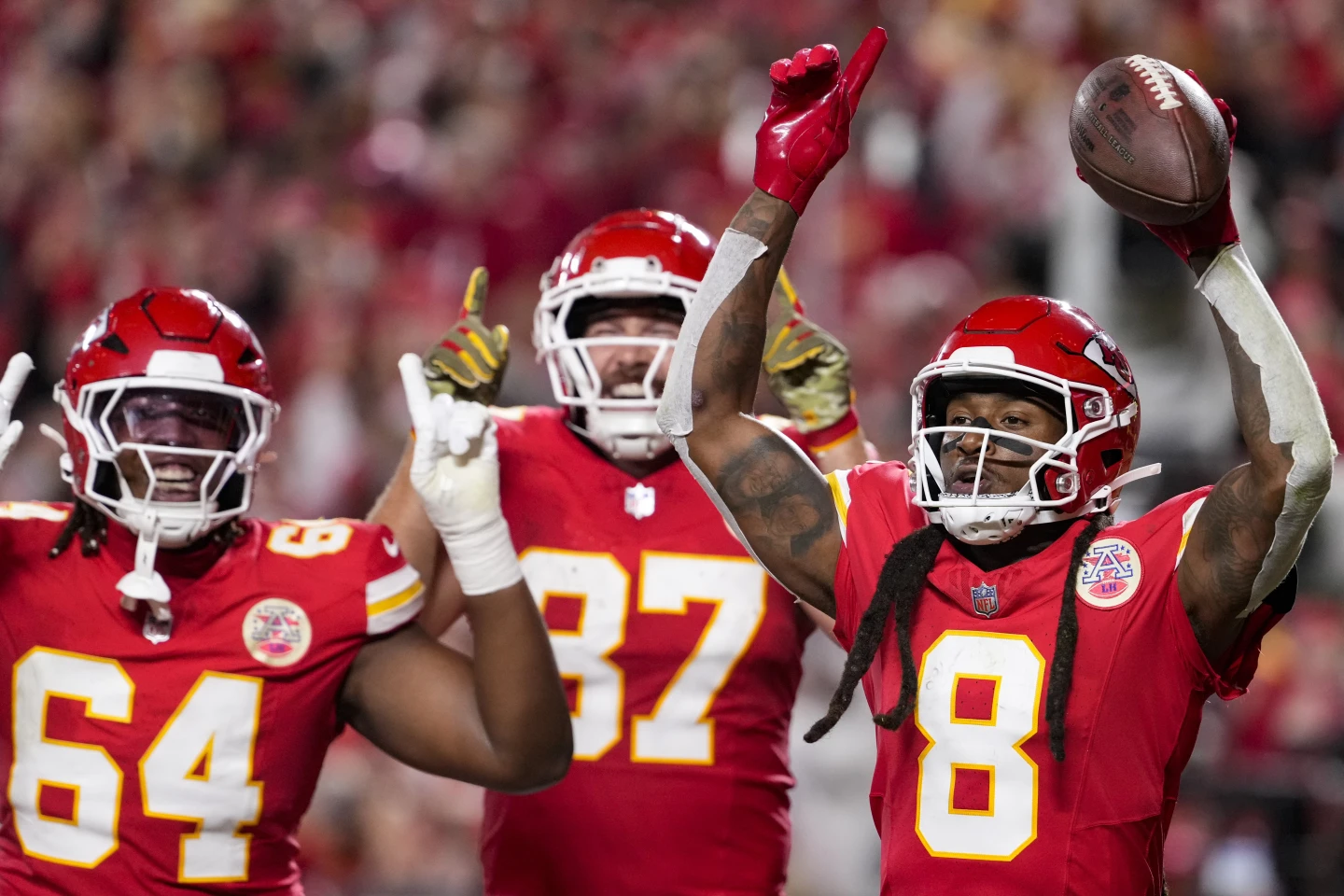
Although he emphasized that he’s not a physiological psychologist, Wann knows enough about brain power and nervous systems to say it makes sense that people “save up their resources, in awareness or out of their awareness, for when they’re most critical.” In this case, he thought it was similar to the idea of working smarter, not harder.
“I do think that for teams like the Chiefs, and you can think of other teams from other leagues where this has been the case, that they’ve got enough experience to know that there’s two seasons,” said Wann, who is also a big Chiefs fan and went to Shawnee Mission North High. “There’s the season that gets you to the dance, and then what you do at the dance, right? “To say that, ‘Well, they’re going to hold back for the playoffs,’ I don’t know about that.
But at the same time, I think that they understand when the urgency occurs.” As an example, and with a laugh, he remembered a Journey concert at Kemper Arena in the 1980s, when the band seemed like it was about to finish, but then came out strong for an encore. He also thought about George Brett vs. Goose Gossage, and NBA players showing more energy in May than in February.
He even pointed to a defender who intercepts the ball with no one around him and slows down as he gets close to the end zone, knowing he’s not being chased. “They dial it down; as a matter of fact, some dial it down so much they drop the football on the 1-yard-line,” he said. “People know (intuitively) that they don’t want to expend resources that they don’t necessarily have to
“I can’t speak to the fact if it’s a thing for the Chiefs right now or not. But it’s obviously a thing.” Similarly, University of Western Kentucky psychology professor Rick Grieve was careful not to say he knew for sure how this might apply to the Chiefs, but he added, “I can see how it could kind of be in play here.”
Just like how teams sometimes play worse against weaker opponents, it makes sense that they may not be as motivated when the game doesn’t matter as much, no matter how hard they try to stay focused. At the least, Grieve said, a team like the Chiefs, with their recent playoff success, could have “the cognitive capacity to understand what we need to do to make it through to the next level.” And then? “I don’t want to say (they would be) paying more attention, but being more mindful of the little … details,” he said.
Later, he added, “I hate to say it, but (human nature is to) focus a little more because it means a little more….” “This is not their first rodeo. So I think the players that have been through this before, been through this experience before, know what needs to happen to get there again.”
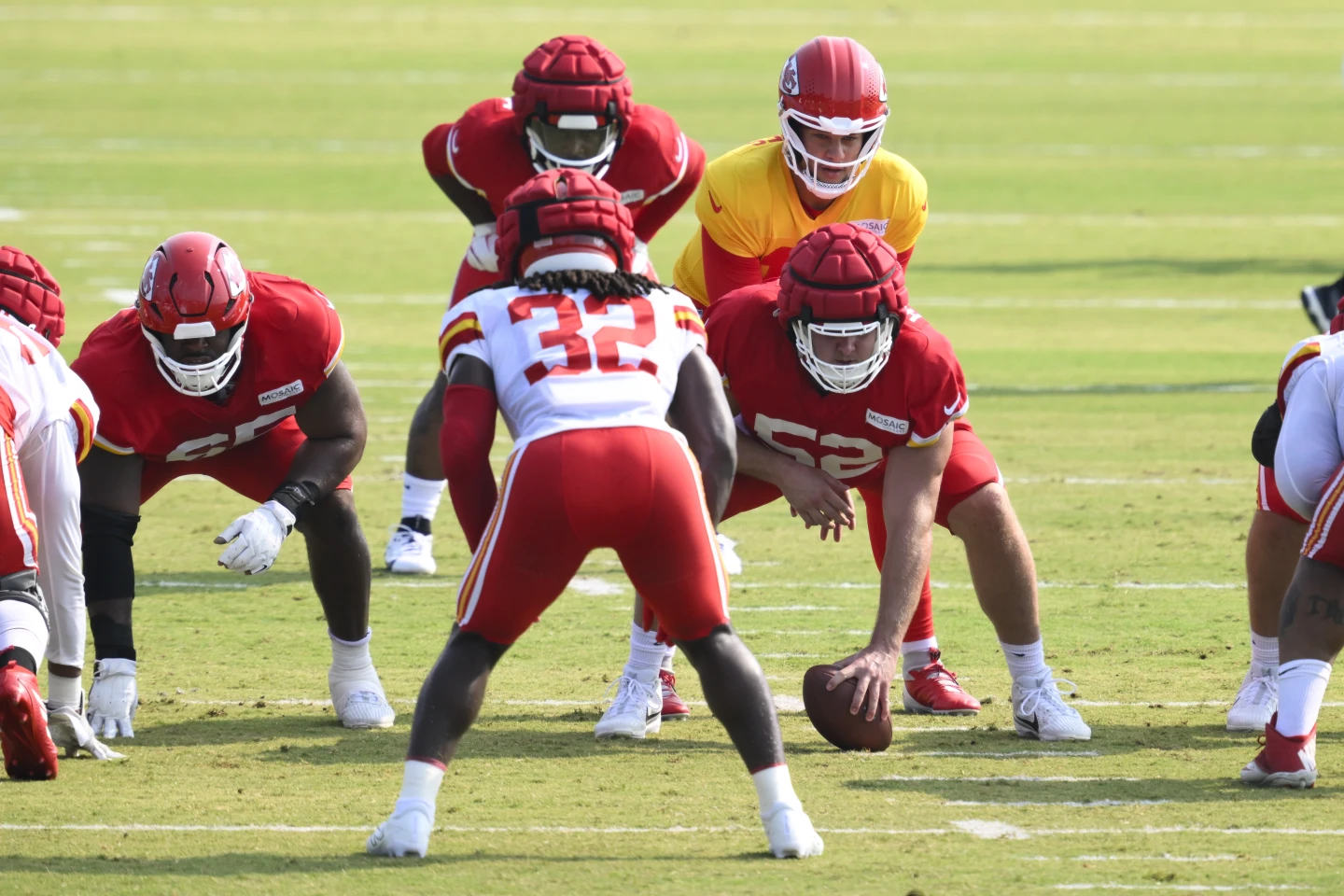
If this is the case, Grieve pointed out, it might be less about being unconscious or having an urge, and more about experience: “’We understand what points we need to hit and when we need to hit them.’”
Now, it’s important to say that all of this is interesting to think about until it can no longer be proven by the results, which could happen at any time. And Chiefs guard Trey Smith was just as correct when he disagreed with the idea that experience gives any postseason advantage.
He said experience is an overrated stat for the playoffs. Even if the core of the team has “a really competitive nature and we have a guy named Patrick Mahomes,” he said, the Chiefs have to understand that they could lose on any given day and still need to earn everything. Moreover, Wann reminded, there’s a fine line between motivation and pressure.
Still, the Chiefs, one way or another, are uniquely ready for this challenge. And that’s something that will help them. “There’s a difference between ‘I think I can’ and ‘I know I can,’” Wann said. “The Chiefs more than any other team in the NFL have the ‘I know I can’ and confidence.
“With confidence comes success. There’s no better predictor of success than confidence. And the beauty of it is, there’s no better predictor of confidence than success.”



